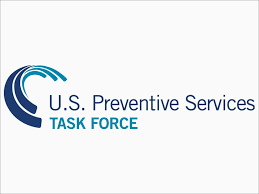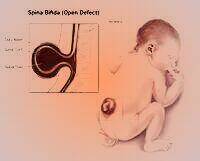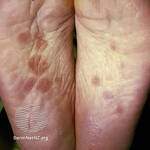USPSTF: Health Care Professionals Should Recommend Exercise for Seniors at Risk of Falls
USPSTF: New Guidelines Recommend All Women Get Screened for Breast Cancer Beginning at Age 40, Earlier if They Are at High Risk
USPSTF: Blood Pressure Should Be Monitored Throughout Pregnancy
 Esa M. Davis, M.D., M.P.H , F.A.A.F.P
Professor of Medicine and Family and Community Medicine
Associate Vice President of Community Health and
Senior Associate Dean of pPopulation Health and Community Medicine
University of Maryland School of Medicine
Dr. Davis joined the U.S. Preventive Services Task Force in January 2021
MedicalResearch.com: What is the background for this study?
Response: Hypertensive disorders of pregnancy, including gestational hypertension, preeclampsia, and eclampsia, are among the leading causes of serious complications and death for pregnant people in the United States.
Pregnant women and pregnant people of all genders should have their blood pressure measured at each prenatal visit to help find and prevent serious health issues related to hypertensive disorders of pregnancy. (more…)
Esa M. Davis, M.D., M.P.H , F.A.A.F.P
Professor of Medicine and Family and Community Medicine
Associate Vice President of Community Health and
Senior Associate Dean of pPopulation Health and Community Medicine
University of Maryland School of Medicine
Dr. Davis joined the U.S. Preventive Services Task Force in January 2021
MedicalResearch.com: What is the background for this study?
Response: Hypertensive disorders of pregnancy, including gestational hypertension, preeclampsia, and eclampsia, are among the leading causes of serious complications and death for pregnant people in the United States.
Pregnant women and pregnant people of all genders should have their blood pressure measured at each prenatal visit to help find and prevent serious health issues related to hypertensive disorders of pregnancy. (more…)USPSTF: PrEP Helps Prevent HIV but Not Other STDs. Safe Sex Still Important
USPSTF: Anyone Who Could Become Pregnant Should Take Folic Acid To Prevent Spinal Cord Defects
USPSTF: Lipid Screening Recommendation Statement for Children and Adolescents
USPSTF: High Risk Populations Should Be Screened for Latent Tuberculosis
USPSTF Issues Skin Cancer Screening Statement
USPSTF Statement on Screening For Genital Herpes
USPSTF: Hormone Therapy Not Recommended to Prevent Chronic Health Problems After Menopause
USPSTF Recommends Syphilis Screening for Those at Risk
USPSTF: Assesses Benefits and Harms of Screening for Prediabetes and Type 2 Diabetes in Children and Adolescents
USPSTF Evaluates Statin Use for Primary Prevention of Heart Disease
USPSTF: Evaluates Benefits of Diet and Exercise Counseling for Adults Without Known Heart Disease Risk Factors
MedicalResearch.com Interview with:
Lori Pbert, Ph.D Professor, Department of Population and Quantitative Health Sciences Associate chief of the Division of Preventive and Behavioral Medicine Founder and director of the Center for Tobacco Treatment Research and Training University of Massachusetts Chan Medical School Dr. Pbert joined the U.S. Preventive Services Task Force in January 2019
MedicalResearch.com: What is the background for this study? What are the main findings?
Response: Heart attacks and strokes are the number one killer of adults in the United States. Based on the evidence we reviewed, the Task Force found that some people would benefit from counseling interventions to support their cardiovascular health, however the overall benefits are small. For that reason, we continue to recommend that healthcare professionals decide together with their patients who do not have cardiovascular disease risk factors whether counseling interventions on healthy diet and physical activity might help them prevent heart attacks and strokes. This is a C grade recommendation. (more…)


























